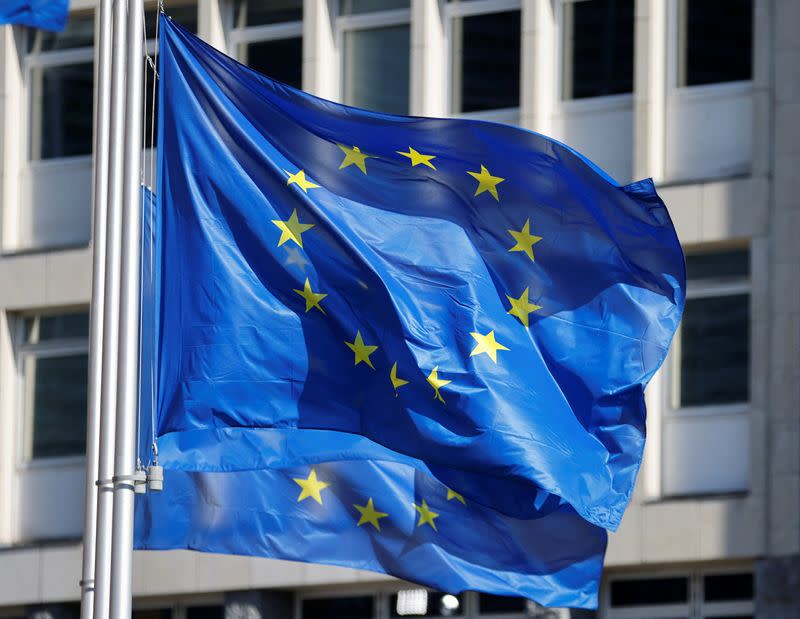EU parliament set to accept renewables deal with assurances on ammonia plants

By Kate Abnett
BRUSSELS (Reuters) - European Union lawmakers plan to accept changes made by countries last week to the bloc's renewable energy law, to give assurances to France and others on potentially exempting ammonia plants, the parliament's lead negotiator said on Monday.
EU countries on Friday agreed late changes to the law, adding an amendment that said some ammonia plants would struggle to switch to renewable fuels, and a pledge from the European Commission to consider exempting them from renewable targets.
The law significantly increases the EU's renewable energy targets, requiring 42.5% of EU energy to be renewable by 2030, replacing the bloc's current 32% target for that date.
Markus Pieper, the EU Parliament's lead negotiator on the law, said the changes appeared to have been necessary to unblock the law.
"As Parliament, we would have preferred to go without, but we will not oppose the further procedure," he said in a statement.
Pieper said the parliament's negotiating team of lawmakers from various political groups shared this stance - suggesting the bill should pass a vote in the EU assembly, needed for the law to enter into force.
EU lawmakers had previously pushed back on changing the law, since EU countries and lawmakers had agreed a deal in March, after months of negotiations, which was supposed to be final.
The ammonia opt-out could allow certain plants to switch to fuels made using nuclear energy, rather than renewables fuels. Nuclear energy is CO2-free but not renewable.
France had led a group of countries pushing for nuclear power to be recognised in the renewables law. Opponents including Germany and Spain had argued doing this would undermine efforts to massively expand wind and solar.
"We are quite happy with this compromise," French Energy Minister Agnes Pannier-Runacher said on Monday. German Economy and Climate Minister Robert Habeck called it a "breakthrough".
As part of the deal, France also won an acknowledgement from the Commission of the contribution other "non-fossil energy sources" - such as nuclear - make towards climate goals.
(Reporting by Kate Abnett; editing by David Evans)

 Yahoo Finance
Yahoo Finance 